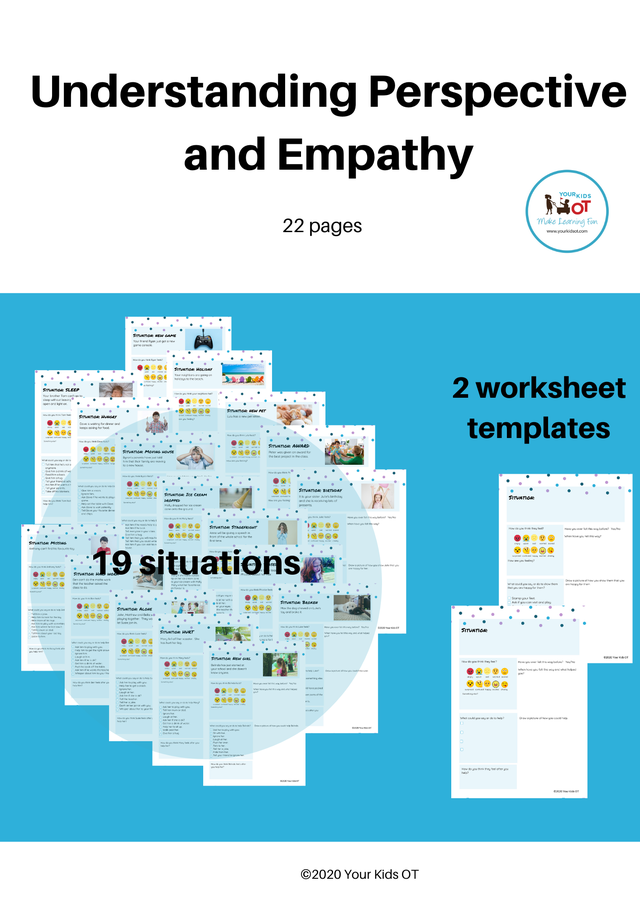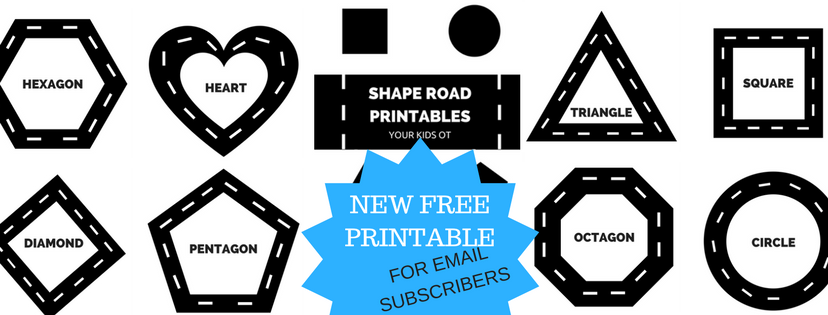- Shop
- >
- Social Emotional Competencies and Regulation
- >
- Understanding Perspective and Empathy
Understanding Perspective and Empathy
Parents, teachers and therapists may use these printable pages to assist with behavior management, social emotional competencies and regulation. Children may be encouraged to identify feelings associated with themselves and others during each of the situations. Naming and validating feelings is an important part of co-regulation and the development of self regulation. The situations provided focus on helping children to understand someone else's perspective and discovering ways to assist the other person (showing empathy). Children may make a personal connection to familiar situations.
It is acknowledged that children may not be able to help or should not need to help in all situations. The "help" provided may be as small as a smile or listening to the person who is experiencing something difficult. These pages may be used to promote discussion with your child and include 12 situations that are problem based in a worksheet format.
It is also important for children to understand someone else's point of view when they are celebrating, rejoicing or being acknowledged by others. These pages include 5 of these situations encouraging children to be "happy" for others. It is acknowledged that children may feel a range of emotions when they "miss out". They may be disappointed, jealous and upset. These emotions may be discussed together with understanding the other person's feelings.
There are blank worksheets provided for both "problem-based" and "happy-based" situations that may be used to assist with a specific situations that your child is having difficulty managing.
22 pages




